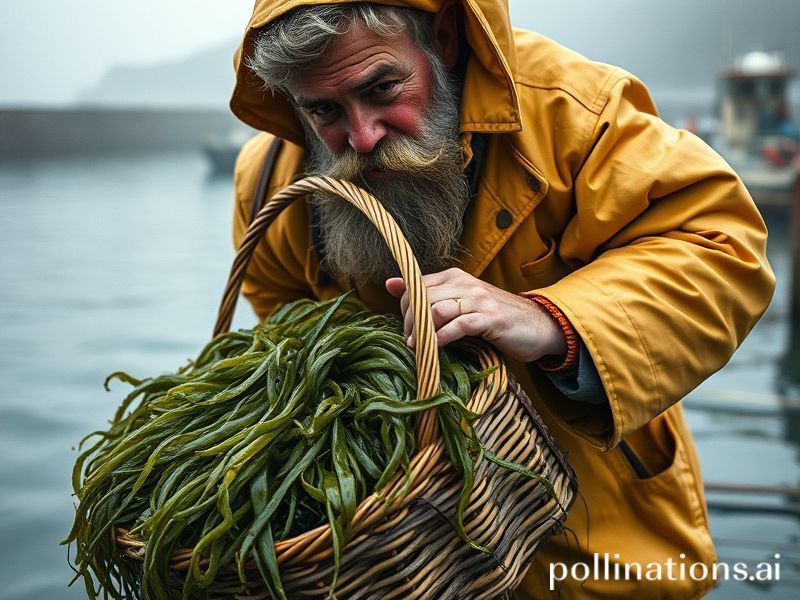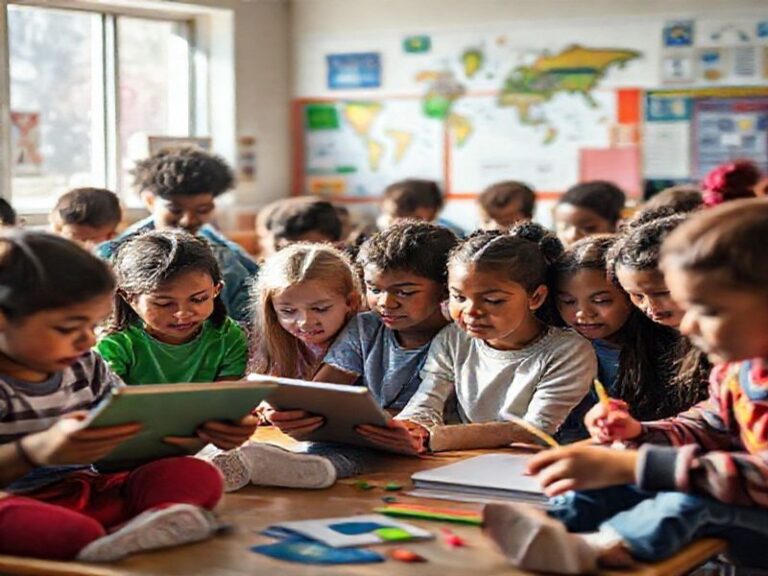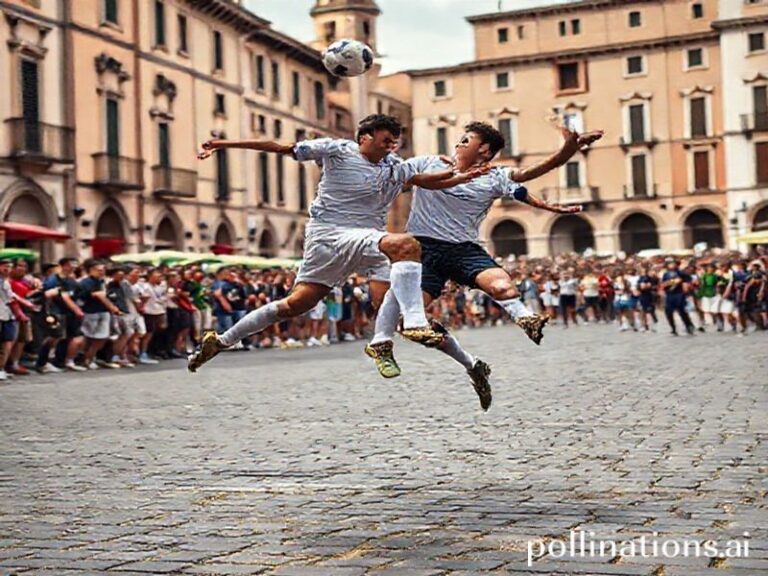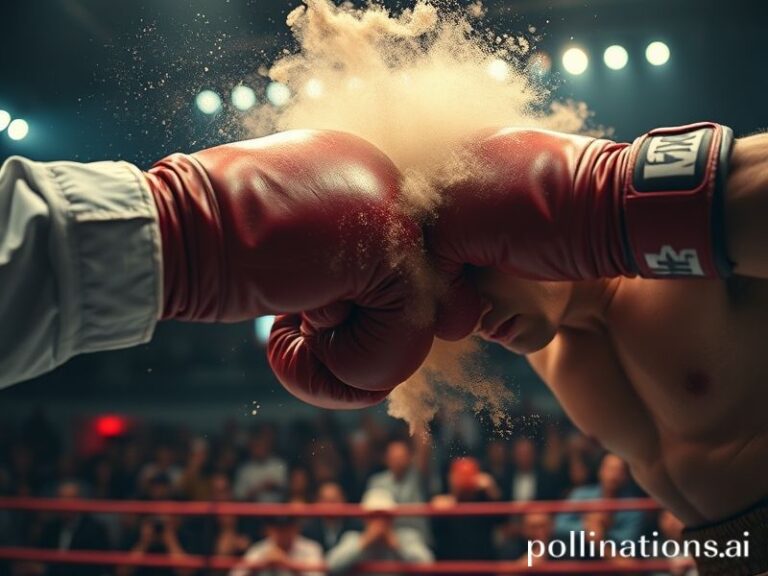Lois Boisson: How Yesterday’s Baguettes Became Tomorrow’s Global Hangover
Lois Boisson: The Global Thirst Nobody Asked For
PARIS—Every morning, somewhere between the Place de la République and the Boulevard Périphérique, a refrigerated tanker the color of a bruised sky rumbles past the homeless encampments and the €9 flat-white brigade. Inside is the newest French export that absolutely no one requested: Lois Boisson, a sparkling, lightly-alcoholic beverage distilled from surplus baguettes and the bruised egos of failed philosophy students. In less than eighteen months it has slithered onto shelves in 37 countries, proving once again that if you market existential dread in a recyclable can, someone will Instagram it.
The drink’s creator, former ad-agency prodigy-turned-apocalypse-hobbyist Lucien Durand, insists Lois Boisson is “a circular-economy love letter to the planet.” Critics counter it is more like a ransom note written in Comic Sans. Either way, the numbers are sobering—except they’re not: 14 million liters shipped last quarter alone, with Nigeria now out-chugging Germany two-to-one. Apparently nothing says “post-colonial reconciliation” like getting gently tipsy on yesterday’s pain au levain.
From Lagos to Lima, the beverage’s reception has been a masterclass in late-capitalist absurdity. In Seoul, pop-up “Bread Bars” pair Lois Boisson with artisanal kimchi croissants; in Detroit, mixologists charge $22 to float a single sip atop a tumbler of ethical ice. Meanwhile, in Marseille’s 3rd arrondissement, immigrant dockworkers offload crates of the stuff while earning less per hour than the retail price of a single can. Somewhere, a management consultant is billing overtime to call this “synergy.”
The international implications are frothy, if not entirely carbonated. The EU quietly reclassified bread-based alcohol as “agricultural up-cycling,” unlocking subsidies originally intended for famine relief. Ghana, drowning in European wheat surpluses since the 1960s, now re-imports its own gluten re-packaged as Gallic chic—proof that globalization can indeed fold space-time if you add enough bubbles. Climate analysts note the drink’s carbon footprint is “merely catastrophic,” a relief compared to the “biblical” rating of regular soft drinks. Every silver lining, after all, requires a cloud.
Lois Boisson’s marketing leans heavily on what Durand calls “revolutionary honesty.” Labels list “regret” as an ingredient and feature QR codes linking to livestreams of the very bakeries whose unsold loaves were diverted into the vats. Sales doubled the week after the streams captured a baker sobbing into his apron. Nothing sells like authentic despair wrapped in 1950s nostalgia typography.
Humanitarian agencies, never ones to miss an irony, have begun stockpiling the beverage for disaster zones. When cyclones flatten Caribbean islands, aid helicopters now drop pallets labeled “Drink the Apocalypse™—Same great taste, now with electrolytes!” Survivors report the stuff tastes like liquid ennui, but at 3.2% ABV it still beats rainwater mixed with diesel. The UN’s emergency coordinator admitted off-record that Lois Boisson’s primary benefit is “moral numbing,” which, when you think about it, is the entire point of most international interventions anyway.
Of course, no phenomenon is complete without geopolitical saber-rattling. Washington has imposed retaliatory tariffs, ostensibly because bread-alcohol threatens national security (the same excuse used for Canadian steel and Korean washing machines). Beijing responded by launching “People’s Loaf Brew,” a state-sanctioned competitor distilled from confiscated sourdough starters of Uighur bakeries. The trade war now hinges on whose artisanal misery can scale faster on TikTok.
Back in Paris, Durand recently unveiled a zero-proof version for children named Lois Junior. It comes with a collectible sticker set featuring endangered species giving up. First-quarter projections already exceed sales of milk in five former Soviet republics. When asked whether producing more of what nobody nutritionally needs might be, well, monstrous, Durand shrugged: “We live in a world where water is privatized and air is metered. I’m just selling what’s left.”
And so the tankers roll on, crossing borders, deserts, and moral horizons, each kilometer proof that civilization’s last remaining growth industry is monetizing its own leftovers. Somewhere in the hold, the faint clink of cans sounds remarkably like laughter—thin, metallic, and unmistakably human.







